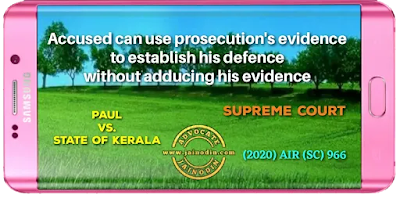It is also stated in Status Report that it was also found during investigation that SGCT Mohinder Singh has purchased land measuring 5 ½ Marlas under Khasra no.497 min situated at Barnai, Jammu, from one, Kiran Bala daughter of Hans Raj resident of Barnai, Bantalab, Jammu, in the year 2012 and sale deed had been executed in favour of alleged accused, Mohinder Singh, for sale consideration of Rs.3.85 Lacs, which was also mutated in his favour. The matter was taken up with Tehsildar North, Jammu, asking him not to allow alienation of the above landed property till further communication from Investigating Agency. Respondents maintain that when accused, Mohinder Singh, became aware about initiation of enquiry, he sold aforesaid piece of land to one, Tanveer Malik (petitioner herein) for Rs.4,68,875/-. The statement of OWP no.1404/2017 IA no.01/2017 witnesses was recorded under Section 161 and 164-A Cr.P.C. Besides, the amount collected by accused, Nirmal Kour and Mohinder Singh, from depositors by way of cheating and fraud, is required to be recovered from them, for which all efforts are being made by respondent and that the investigation of the case is in progress. Thereafter, again on 8 th August 2019 respondent no.2 filed Status Report reiterating the averments made in earlier Status Report and nothing new emerges therefrom.[Para No.5]
Respondents 1&3 (Revenue Department) have filed their objections, asserting therein that FIR no.23/2014 police Station Crime Branch, Jammu, has been lodged against Nirmal Kour and Mohinder Singh, who have sold the land to petitioner. Respondents have made reference of communication no.CBJ/FIR-23/14/21078 dated 21st December 2015, in which they were asked not to allow alienation of land measuring 5 ½ Marlas falling under Khasra no.497 min situated at Barnai, Jammu, and make necessary entry in this regard in revenue records. Respondents 1&3 maintain in their Reply that petitioner was in possession of land in question, mutated in his favour, prior to filing of complaint against seller/vendor and, therefore, petitioner had purchased the land in question legally and was holding its possession peacefully. However, in view of communication dated 21st December 2015, received from Zonal Headquarters, Crime Branch, Jammu, issuance of revenue papers (Fard) has been withheld as respondents have no option but to withhold issuance of revenue paper in order to carry out the directions received from Crime Branch.[Para No.6]
Petitioner has purchased land in question by way of a Sale Deed. The said Sale Deed has been registered by registering authority, viz. Sub Registrar, Jammu, on 9th July 2014. Registration of a document, in the present case is a Sale Deed, is a final seal to a document to be implemented and carried in revenue records . From the file as also from the Reply, filed by respondents 1&3, it is evident that mutation has been effected in compliance of registration of aforesaid Sale Deed and necessary entries have been made in revenue records by Revenue Department. Neither Sale Deed nor is Mutation under challenge before any court of law and therefore, the same has attained finality.[Para No.8]
In addition to this, perusal of Reply reveals that respondents 1&3 have categorically stated that petitioner was in possession of land in question, mutated in his favour, prior to filing of complaint(s) against seller/ vendor and that petitioner has purchased the land in question legally and was holding its possession peacefully. Once that being the position, issuance of impugned direction contained in communication dated 21 st December 2015, amounts to infringement of constitutional and statutory rights of petitioner. He has purchased the land in question by way of a valid document. Preventing him from enjoying the property amounts to infringement of his constitutional rights as guaranteed under Article 300A of the Constitution of India and a human right as well. Petitioner has every right to obtain revenue excerpts with respect to his aforesaid landed property as also to alienate it in accordance with laws and rules regulating the field. [Para No.9]


